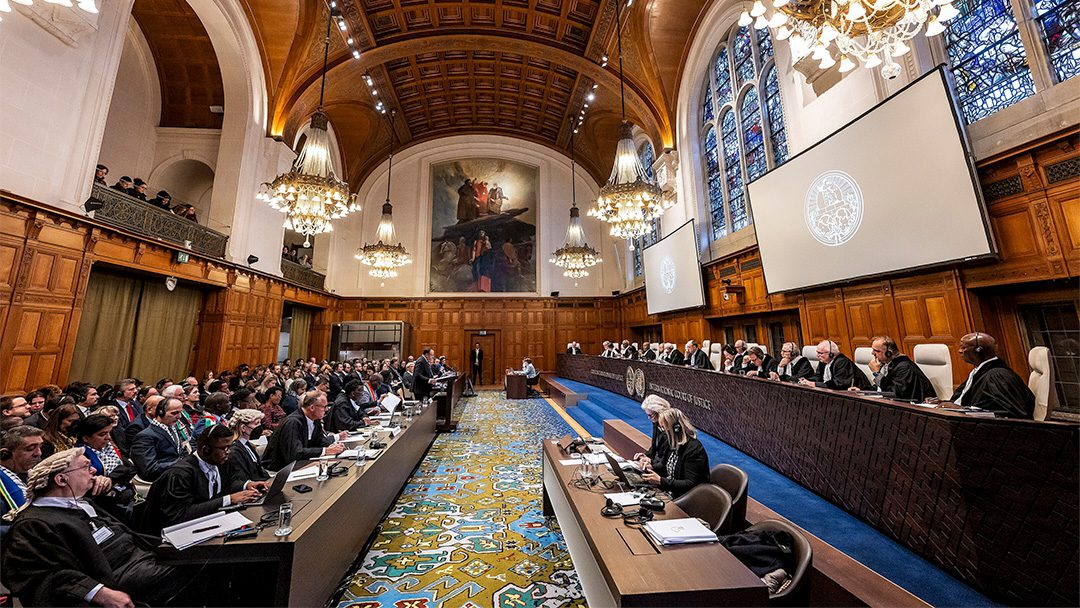There are those who use international law to condemn and criticize Israel. And there are those who use international law to defend Israel and the Jewish people. This can be very confusing. How do we discern who is “right” and who is “wrong”?
Law, politics and ideologies
One answer is that there are very few “rights” and “wrongs”. Finnish diplomat and legal philosopher Martti Koskenniemi explains that we should not see international law as a set of rules, but rather as a kind of political “language”: it is “an expression of politics much like Christianity constitutes one type of expression of religious spirituality”. He says that “issues of justice cannot be solved by the application of ready-made rules or principles”. Koskenniemi emphasizes that legal reasoning is a necessary part of international relations and politics, and so constantly oscillates between “idealism” and “realism”, reflecting the ideological position of those who use it.
This is a very important insight. It means that international law contains relatively few binding rules, and that when people refer to “international law” to support a particular position, they are usually using legal language to express what in fact are political or ideological preferences. International law is not a magic box; it does not give clear-cut answers to complex problems. This is especially relevant when it comes to the so-called “Israel-Palestine conflict”.
Idealism and realism
There are traditionally two main ways that those involved in international relations approach international law. The first is realism. Realism accepts that while international law may express lofty ideals, it does not give clear answers to all questions; international institutions may be important, but they cannot resolve complex conflicts. It emphasizes that the protagonists themselves are primarily responsible for reaching mutually-satisfactory arrangements to ensure their peaceful coexistence. In short, realism downplays the role of international law and institutions, and emphasizes pragmatism.
In the context of the Israel/Palestine conflict, realism understands that the Middle East is a very complex place comprising many different ethnic, cultural and religious groups, each of which claims a connection with certain territory, each with its own (evolving) self-awareness, history and political and religious goals. One of these groups is the Jewish nation, which was born 3,500 years ago in the territory now known as Palestine. The majority of this nation (Jews) have lived in the diaspora for over two millennia, while retaining a strong national and religious tie with the land. The realist also accepts the existence of the Palestinian people, who feel that they have been uprooted by Zionism. It understands that the only way peace will eventuate in this region is when Jews, Arabs and all who live there are able and willing to live together.
International law is not a magic box; it does not give clear-cut answers to complex problems.
Idealism, on the contrary, looks to law and legal institutions as the means to achieve a perfect world. It tends to promote global governance and advocate an expansive role for human rights law and institutions.
An idealist thinks there is an Israel/Palestine conflict consisting of a perpetrator and victims: Israel is an “occupying power”, and the Palestinians are victims living under an oppressive occupation. This simplistic paradigm looks for solutions that will “punish” the oppressor and “liberate” the victim. This line of reasoning places all responsibility on Israel, but ignores the role that the Palestinians themselves have played in creating the conflict, and their responsibility for finding solutions to their own problems.
The new world order
Since the mid-20th century, an idealistic mindset has dominated European politics and the legal academic world, advocating a “new world order” in which human rights provide the answer to the world’s problems. This ideology argues that the sovereignty of states should be limited, and the jurisdiction of international institutions should be expanded, in order to achieve global “justice”.
This is reflected in three main global developments.
The first is the explosive development of human rights law, including institutions such as the UN Human Rights Council (UNHRC), and the multitude of Non-Governmental Organizations like Amnesty International and Human Rights Watch. This in turn led later led to the creation of international criminal law, building on the Nuremburg trials. These institutions and organisations constantly and overwhelmingly condemn Israel for breaching its human rights obligations.
The second is the development of international humanitarian law, especially the adoption in 1949 of the Geneva Conventions, including the Fourth Geneva Convention on the law of belligerent occupation. This body of law has been used to restrict Israel’s capacity to defend itself against terror.
The third has been the gradual crystallization since the early 1960’s, of the rights of peoples to self-determination, as a legally-binding principle. This has resulted in the recognition of the Palestinians as a “people” after 1973 within the UN, and of the PLO as their sole legitimate representative. Then this is used to (automatically) justify a Palestinian state.
A new approach?
Idealism has failed to provide a “solution” to the Israel/Arab/Palestine conflict. Realists would argue this is because it underestimates the complexities of the situation, and overestimates the capacity of law to provide solutions. Yet realism also has its limitations, because it is often used as an excuse to avoid responsibility for “the other”, and to justify the maintenance of the status quo.
Neither idealism nor realism is inherently wrong. Yet neither provides the whole answer. The truth is we live in a global world; the conduct of states and other international actors affect each other, so they cannot simply withdraw behind their borders and ignore their responsibilities. But, equally, the common search for a world of “peace” and “justice” needs to be tempered by an acknowledgement that most conflicts are complex, that law is an imperfect instrument for effecting change, and that at the end of the day the protagonists themselves are responsible for solving their own problems. International law helps the parties to reach and implement agreed solutions.
Let’s hope 2021 will be a year of “realistic idealism”.












0 Comments